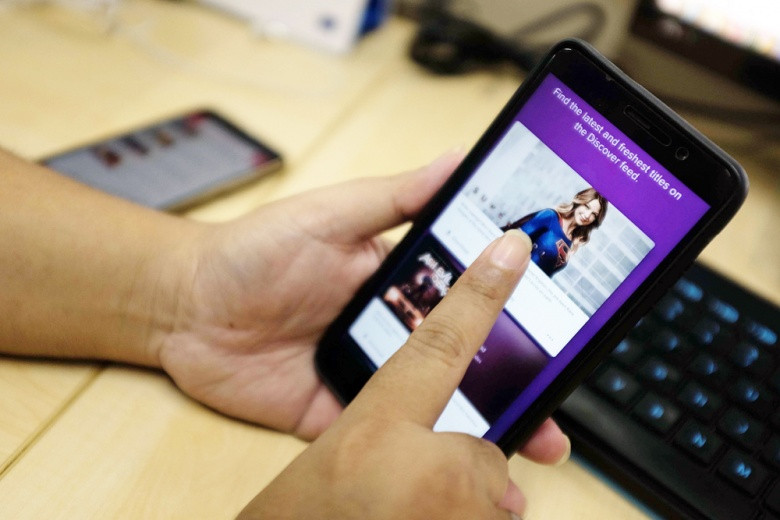Popular Reads
Top Results
Can't find what you're looking for?
View all search resultsPopular Reads
Top Results
Can't find what you're looking for?
View all search resultsTech industry to lead growth in Indonesia until 2022
The ICT sector has benefited from the increased digitalization of people’s daily activities, such as work and school, during the pandemic.
Change text size
Gift Premium Articles
to Anyone
T
he information and communications technology (ICT) sector is expected to lead economic growth in Indonesia both this year and in 2022, as the COVID-19 pandemic has induced a faster-than-expected takeup of digital services.
The ICT sector will grow by between 9.1 and 10.1 percent this year and 9.8 to 10.3 percent in 2022, according to a Fiscal Policy Agency (BKF) projection.
“Other sectors look even, but the sector we have generally been focusing on, namely information and communications, is performing really well,” BKF head Febrio Kacaribu said at an online briefing on Friday. “We also see it continuing to improve in 2022.”
While the pandemic has battered contact-intensive industries, the ICT sector has benefited from the increased digitalization of people’s daily activities, such as work and school, as the government has upheld mobility restrictions in one form or another for more than a year.
The ICT sector, which employs less than 1 percent of the national labor force, grew by 10.6 percent in 2020, second only to healthcare services. Conversely, the transportation and warehousing sector, which employs some 4.5 percent of the workforce, booked the sharpest contraction at 15 percent, followed by food, beverages and accommodation services.
The gross merchandise value (GMV) of the country’s internet economy was estimated to grow by 11 percent to US$44 billion in 2020 from a year earlier, according to the e-Conomy SEA report by Google, Temasek and Bain & Company.
Read also: Indonesia to see double-digit growth in digital transactions this year: BI
The transportation and warehousing sector was forecast to rebound and grow by between 4.5 and 5.5 percent this year. For 2022, the sector’s growth is estimated at between 7.5 and 8 percent, depending on Indonesia's pandemic response and vaccination efforts.
Overall, the country’s gross domestic product (GDP) is forecast to expand between 4.5 and 5.3 percent this year and between 5.2 and 5.8 percent in 2022.
“This is with notes that herd immunity must be achieved by early 2022 and assuming that consumption and production activities normalize, that household spending growth rebounds to around 5 percent and that the implementation of structural reforms can really spur our economic growth as we are hoping,” said Febrio.
Read also: Indonesia won’t reach herd immunity until 2023: Moody’s
Speaking at the same online briefing, Josua Pardede, the chief economist at publicly listed Bank Permata, said that while the COVID-19 pandemic was the game-changer catapulting the growth of the ICT sector, the government also needed to provide the necessary digital infrastructure.
“This is key going forward, as it is the new normal for Indonesia and various countries across the world, bearing in mind that the ICT sector and the digital sphere will keep growing,” said Josua.
State-owned telecommunications firm Telkomsel launched the first commercial 5G service in the country in late May. The company will first provide the service in the residential areas of Jakarta and South Tangerang in Banten.










